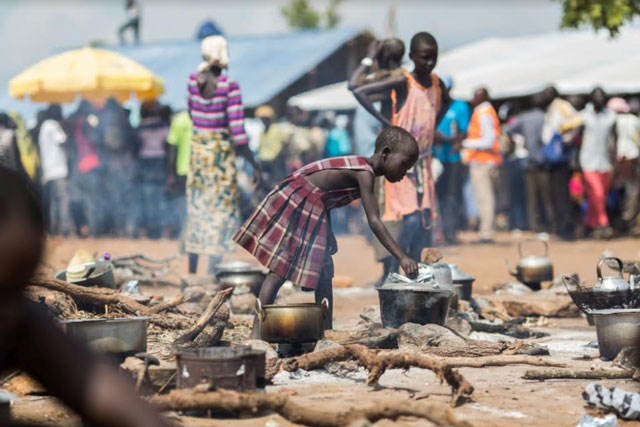
Kampala, Uganda | THE INDEPENDENT | Experts have expressed concern over the high rates of mental distress among people living in refugee settlements.
Speaking during a dinner to mark the 30th anniversary of Transcultural Psychosocial Organisation (TPO) Uganda on Friday, Peter Okwi, the NGO’s Country Director called for increased investment into the provision of mental health services.
He noted that they are seeing an increase in reports of people who attempt and those who commit suicide in the refugee settlements.
Okwi says that as a solution to this problem, the organization introduced an innovation of psychological first aid to attend to basic needs of the refugees in order to reduce mental distress. He says that they do this by offering a comforting presence and awareness about the common triggers of stress.
In the last 30 years, the organization reports to have reached about 5.5million people in 73 districts with interventions in the area of prevention of violence, creating livelihoods for displaced people in addition to linking those with various forms of mental distress to appropriate counselors, psychologists and psychiatrists.
Patrick Mangeni, the founder of TPO said that while there is a lot of work that both government and NGOs have done to improve lives of refugees living in organized settlements, nothing much has been done about urban refugees and asylum seekers and many of them are as a result living in deplorable conditions.
He pointed out that many of them cannot be traced and offered appropriate psychosocial care that they require and therefore urged TPO to conduct research that will guide up on the best interventions to help them.
According to statistics by the Office of the Prime Minister (OPM), there are an estimated 90,000 refugees and asylum seekers living in Kampala but experts say the number could be bigger and growing to extend to other cities and urban areas.
Patrick Okello the Commissioner in charge of refugees at the OPM acknowledges that urban refugees are vulnerable and notes that so far, the government is promoting peaceful coexistence between them and the host community.
He says unlike those living in designated settlements, urban refugees and asylum seekers are living in different locations which makes interventions targeting just them quite untenable.
As part of the solutions to help them get a better quality of life, they have also embarked on voluntary repatriation and relocation of some of them to third countries citing Canada, where they have already had about 50,000 refugees resettled.
Dr Hafsa Lukwata who heads the Mental Health Division in the Ministry of Health said suicide is bound to happen with the hopelessness that comes with displacement.
She adds that the ministry has tried going to refugee settlements to offer mental health services and uses an open policy that allows them to be referred to public hospitals for free healthcare just like Ugandans in the host communities.
However, she notes that for urban refugees, it’s quite difficult for health workers to offer them targeted services since they are not confined in one place.
Uganda is Africa’s biggest refugee host country with more than 1.7million refugees currently settled in either the demarcated settlements or in the community.
****
URN
 The Independent Uganda: You get the Truth we Pay the Price
The Independent Uganda: You get the Truth we Pay the Price


